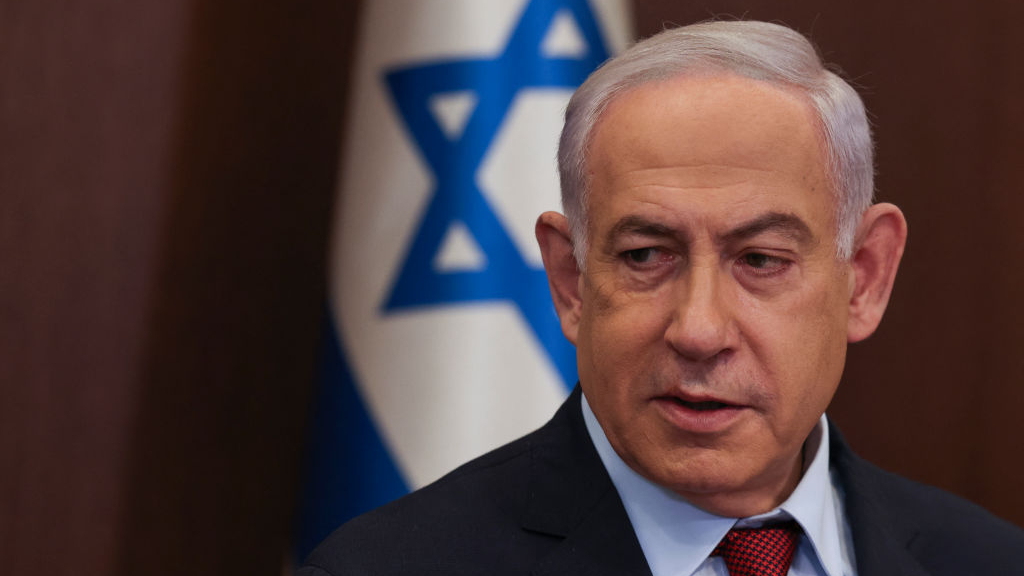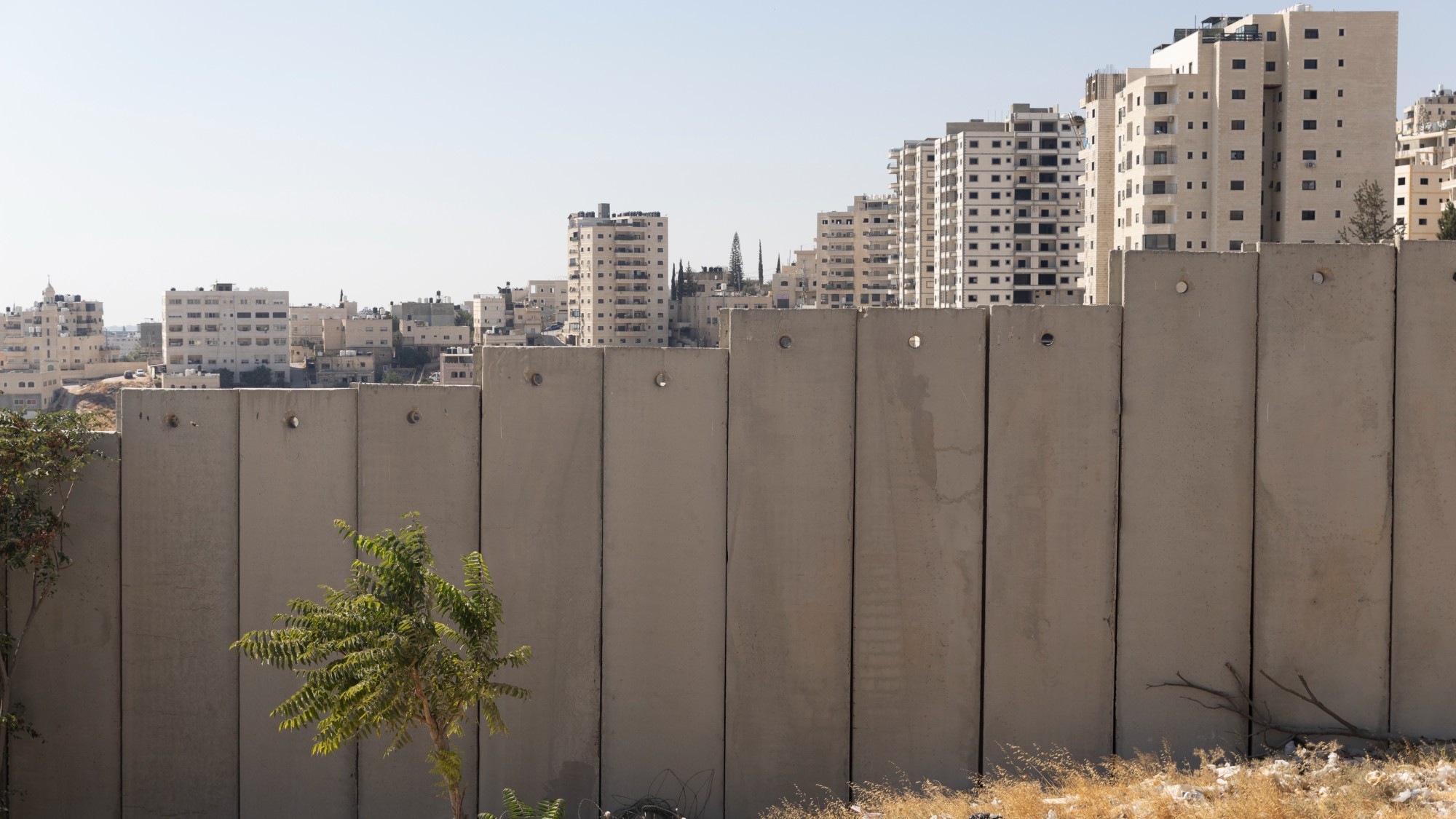Why Israel's Netanyahu encouraged suitcases of cash for Gaza
Benjamin Netanyahu and his allies say he was trying to prevent a humanitarian disaster in the Gaza Strip. Netanyahu's critics, citing his own words, say he was trying to buy — and thwart — peace.


A free daily email with the biggest news stories of the day – and the best features from TheWeek.com
You are now subscribed
Your newsletter sign-up was successful
Israeli Prime Minister Benjamin Netanyahu "not only tolerated" years of monthly cash payments from Qatar to the Gaza Strip, up until Hamas attacked Israel on Oct. 7, "he had encouraged them," The New York Times reported Sunday.
The payments, which Israel knew "helped prop up the Hamas government" in Gaza, continued even as the Israeli military obtained detailed battle plans for a Hamas invasion and observed "significant terrorism exercises" in the Palestinian enclave, the Times reported. For years, "Israeli intelligence officers even escorted a Qatari official into Gaza, where he doled out money from suitcases filled with millions of dollars."
The cash payments have been an open secret in Israel — as Last Week Tonight's John Oliver discussed in the second half of a November look at the symbiosis between Hamas and Netanyahu.
The Week
Escape your echo chamber. Get the facts behind the news, plus analysis from multiple perspectives.

Sign up for The Week's Free Newsletters
From our morning news briefing to a weekly Good News Newsletter, get the best of The Week delivered directly to your inbox.
From our morning news briefing to a weekly Good News Newsletter, get the best of The Week delivered directly to your inbox.
Through interviews with more than two dozen officials in Israel, the U.S., Qatar other Middle Eastern governments, the Times "unearthed new details" about the Gaza payments and the steps Netanyahu took to "keep the money flowing" despite the controversies it sparked in his governments. Allowing the billions of dollars in payments, the Times reported, was a "gamble" by Netanyahu that a "steady flow of money would maintain peace in Gaza" and "keep Hamas focused on governing, not fighting."
Netanyahu's critics say he wasn't just trying to "buy quiet" from Hamas but also prop it up to weaken the internationally recognized Palestinian Authority, which governs in the West Bank, as a means to thwart talks on Palestinian statehood.
Netanyahu told Politico in late November that the payments were "to avoid a civilian humanitarian collapse" in Gaza, and the idea he wanted to build up Hamas is "ridiculous" and "a big lie." But he has been talking about keeping Hamas strong to weaken the Palestinian Authority and lessen pressure to negotiate a two-state peace since at least 2012, publicly and in private, the Times reported.
At a 2019 Likud party conference, Politico noted, Netanyahu said, "Anyone who wants to prevent the establishment of a Palestinian state needs to support strengthening Hamas."
A free daily email with the biggest news stories of the day – and the best features from TheWeek.com
The top Hamas leader in Gaza, Yahya Sinwar, made his own heavily researched gamble that attacking Israel and taking hostages would force hostage-averse Israel to release thousands of Palestinian prisoners and agree to a permanent cease-fire, The Wall Street Journal reported Sunday. "If Hamas has miscalculated, Sinwar could be overseeing the destruction in Gaza of the U.S.-designated terrorist group — and lose his own life."
Peter has worked as a news and culture writer and editor at The Week since the site's launch in 2008. He covers politics, world affairs, religion and cultural currents. His journalism career began as a copy editor at a financial newswire and has included editorial positions at The New York Times Magazine, Facts on File, and Oregon State University.
-
 Can foster care overhaul stop ‘exodus’ of carers?
Can foster care overhaul stop ‘exodus’ of carers?Today’s Big Question Government announces plans to modernise ‘broken’ system and recruit more carers, but fostering remains unevenly paid and highly stressful
-
 6 exquisite homes with vast acreage
6 exquisite homes with vast acreageFeature Featuring an off-the-grid contemporary home in New Mexico and lakefront farmhouse in Massachusetts
-
 Film reviews: ‘Wuthering Heights,’ ‘Good Luck, Have Fun, Don’t Die,’ and ‘Sirat’
Film reviews: ‘Wuthering Heights,’ ‘Good Luck, Have Fun, Don’t Die,’ and ‘Sirat’Feature An inconvenient love torments a would-be couple, a gonzo time traveler seeks to save humanity from AI, and a father’s desperate search goes deeply sideways
-
 ‘Bad Bunny’s music feels inclusive and exclusive at the same time’
‘Bad Bunny’s music feels inclusive and exclusive at the same time’Instant Opinion Opinion, comment and editorials of the day
-
 Is the Gaza peace plan destined to fail?
Is the Gaza peace plan destined to fail?Today’s Big Question Since the ceasefire agreement in October, the situation in Gaza is still ‘precarious’, with the path to peace facing ‘many obstacles’
-
 ‘No one is exempt from responsibility, and especially not elite sport circuits’
‘No one is exempt from responsibility, and especially not elite sport circuits’Instant Opinion Opinion, comment and editorials of the day
-
 ‘Human trafficking isn’t something that happens “somewhere else”’
‘Human trafficking isn’t something that happens “somewhere else”’Instant Opinion Opinion, comment and editorials of the day
-
 Trump’s ‘Board of Peace’ comes into confounding focus
Trump’s ‘Board of Peace’ comes into confounding focusIn the Spotlight What began as a plan to redevelop the Gaza Strip is quickly emerging as a new lever of global power for a president intent on upending the standing world order
-
 How Iran protest death tolls have been politicised
How Iran protest death tolls have been politicisedIn the Spotlight Regime blames killing of ‘several thousand’ people on foreign actors and uses videos of bodies as ‘psychological warfare’ to scare protesters
-
 The Board of Peace: Donald Trump’s ‘alternative to the UN’
The Board of Peace: Donald Trump’s ‘alternative to the UN’The Explainer Body set up to oversee reconstruction of Gaza could have broader mandate to mediate other conflicts and create a ‘US-dominated alternative to the UN’
-
 Israel’s E1 zone in the West Bank: the death of the two-state solution?
Israel’s E1 zone in the West Bank: the death of the two-state solution?The Explainer Controversial new settlement in occupied territories makes future Palestinian state unviable, critics claim
